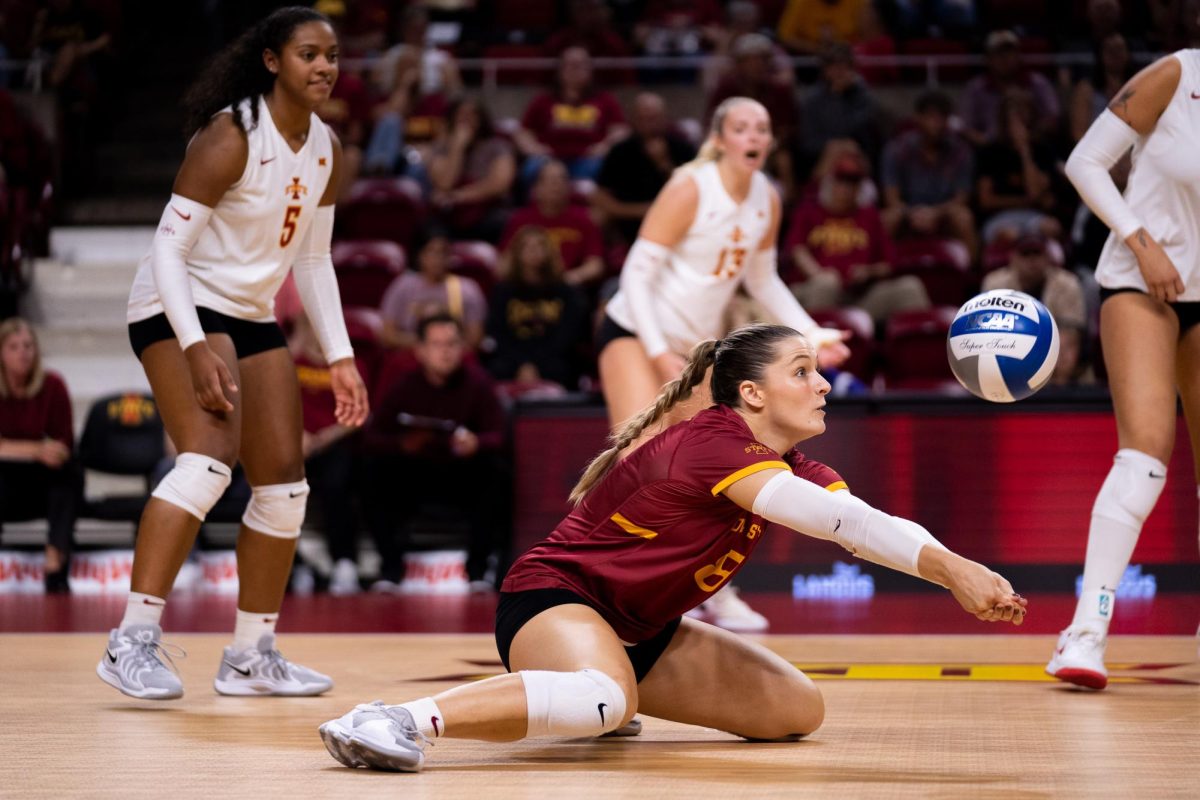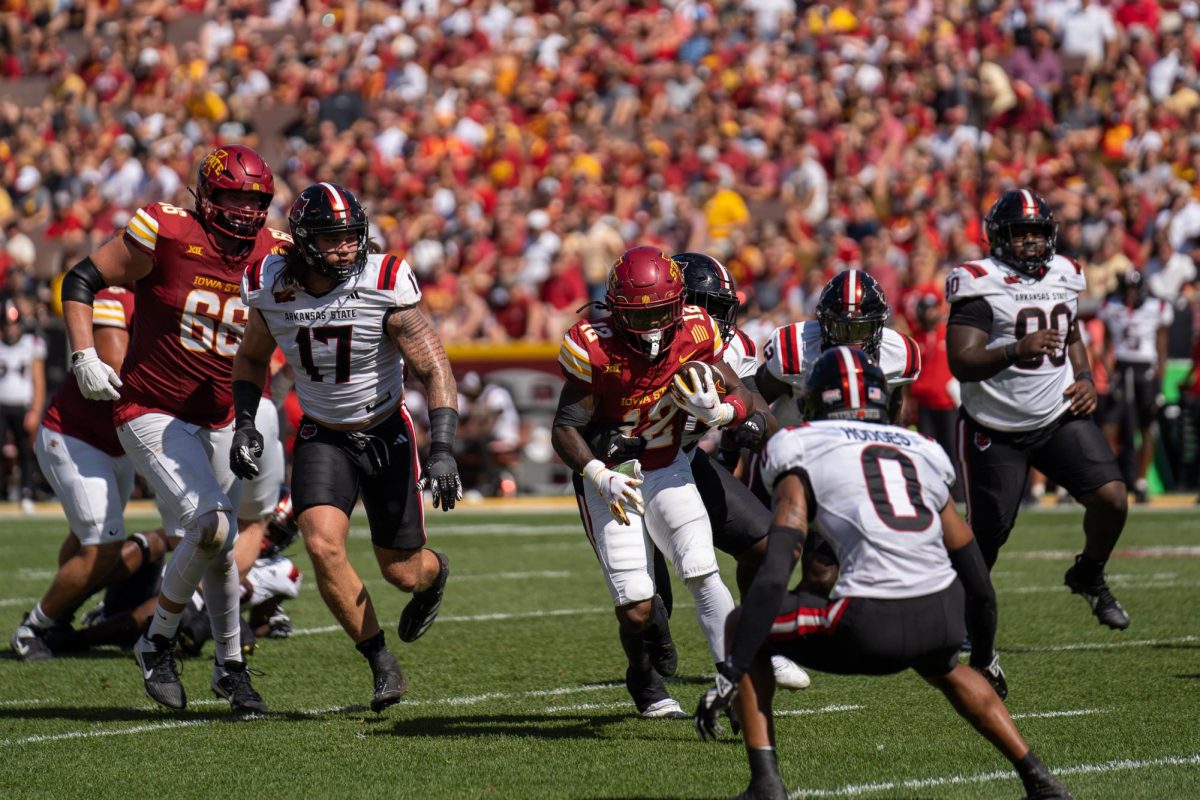Example for handling problems
March 9, 1998
In November of 1995, Iowa State celebrated the naming dedication of Catt Hall. Issues were raised concerning the political racism, bigotry and classism of the honoree, Carrie Chapman Catt. As the Catt Hall controversy is well into its third year, it seems appropriate to question how the university may have responded in order to avoid this continuing conflict which grows with each passing day.
Another university has recently had to grapple with a similar conflict and we can look to them for comparison. At Virginia Tech a discovery was recently made about Claudius Lee, who may have had a possible KKK affiliation while he was a young student.
Today, a Virginia Tech residence hall is named after Claudius Lee, who passed away years ago after a successful career.
His yearbook indicated Lee’s association with an organization which had a logo depicting a black lynched man. Since the discovery of the old yearbook, the Virginia Tech campus has engaged in a debate about Claudius Lee Hall similar to that of the Catt Hall controversy at Iowa State.
Some in the Virginia Tech community immediately suggested the references to the KKK in the yearbook were probably a “prank” and wouldn’t have been considered unusual in Claudius Lee’s youth. Others argued that the controversial reference to the KKK occurred while Lee was still a youth, and that he should be judged in the context of his entire life, or judged by the context of his times, or judged by his contributions which were made after any affiliation with a white supremacist group.
Notwithstanding these arguments, the Virginia Tech President publicly stated that racism is just as serious now as it was then, and that references to the KKK would have been considered alarming to people “way back then” just as they would today.
He emphasized that Klan activities and references thereto would not have been considered acceptable to all people.
Upon discovery of this new information about Claudius Lee, the Virginia Tech President Torgerson held a public forum to discuss the issue at length, posted his remarks on the university’s home page and appointed a diverse committee to research and prepare a report for him.
He also publicly solicited input from everyone in the community on what course of action should be taken regarding Claudius Lee Hall before making a decision on whether Lee Hall should be renamed. In a New York Times article, Torgerson talks about seeing the yearbook pages for the first time and how sick the words made him.
By taking this issue seriously and by reaching out to the members of the community who are most likely to be offended by retaining the name of Lee Hall, the Virginia Tech president may well avoid an ongoing conflict, even if he decides the name should stay the same.
The Virginia Tech president has demonstrated through his actions that he
(1) respects the concerns of various groups even if they are in the minority,
(2) wants and values input from all members of the community, and
(3) does not belittle or dismiss the concerns of people based on their non-majority status or based on majority opinion and pressure.
In contrast with Virginia Tech’s handling of the Claudius Lee Hall issue, response from Iowa State’s President Jischke has been far different regarding Catt Hall. It’s not as though there weren’t warnings or advice about how to respond.
In March of 1996, the Iowa State Daily’s editorial board urged the university “to listen to everyone who has an opinion in the matter. Listening should have occurred before the name was chosen. But we can’t go back in time, so it needs to be done now. It’s the right thing to do. And after the public has had a chance to voice its opinions, the university needs to seriously consider whether or not it should change the name.” (The Name Should Say It All, 3/20/96.)
Unfortunately, ISU’s President Jischke, from the beginning stated that the naming of Catt Hall was not open for review. Offers to listen and talk with students on the issue have always been prefaced with the warning that the issue is, and always has been, closed.
In other words, you can talk all you want but it won’t make a difference because I’ve (Jischke) already made up my mind.
There were no efforts to reach out to the groups that would most likely be hurt or offended by the Catt Hall naming. The university’s lackluster response contributed to hurt feelings which continue to this day at Iowa State.
It is not known what information, if any, President Jischke relied upon when he decided the issue was closed. It is not yet known what information or documentation the university naming committee and the Board of Regents relied upon when approving the naming of Catt Hall. And it is not yet know whether information about Catt, perceived to be potentially controversial, was withheld during the naming process.
These questions still need to be answered, and the conflict needs to be resolved. In the words of the Iowa State Daily, “the university owes it to its community to look into the matter.”
Even though it should have been done three years ago, it is not too late for Iowa State to appoint an independent committee made up of a fair representation of Iowa State faculty, staff and students to reexamine the naming of Catt Hall.
Let’s re-open the process!
Jessica Hirsch
Graduate student
Creative writing
The September 29th Movement
Jason Rivera
Senior
Community and regional planning
The September 29th Movement






